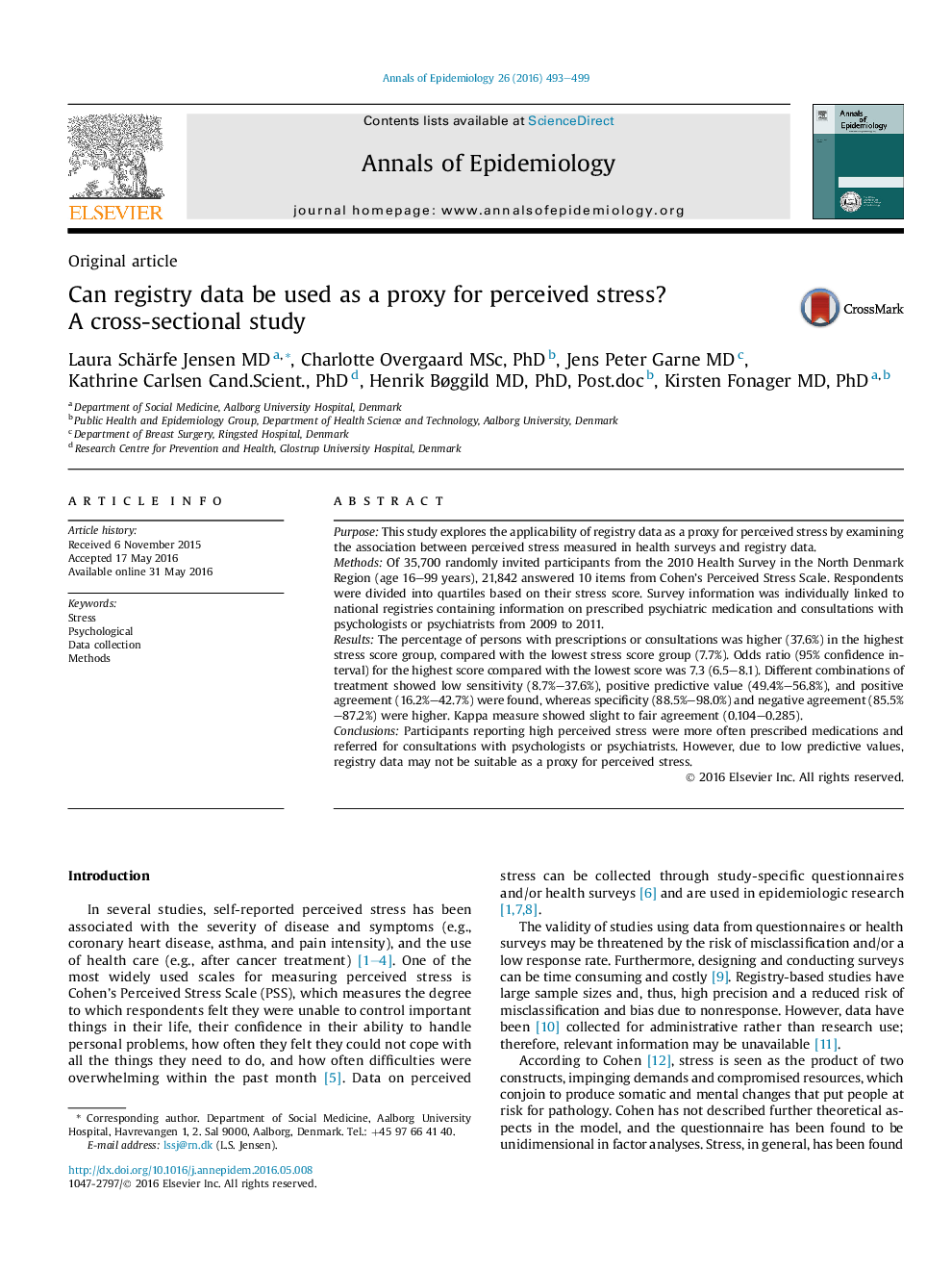| Article ID | Journal | Published Year | Pages | File Type |
|---|---|---|---|---|
| 3443618 | Annals of Epidemiology | 2016 | 7 Pages |
PurposeThis study explores the applicability of registry data as a proxy for perceived stress by examining the association between perceived stress measured in health surveys and registry data.MethodsOf 35,700 randomly invited participants from the 2010 Health Survey in the North Denmark Region (age 16–99 years), 21,842 answered 10 items from Cohen's Perceived Stress Scale. Respondents were divided into quartiles based on their stress score. Survey information was individually linked to national registries containing information on prescribed psychiatric medication and consultations with psychologists or psychiatrists from 2009 to 2011.ResultsThe percentage of persons with prescriptions or consultations was higher (37.6%) in the highest stress score group, compared with the lowest stress score group (7.7%). Odds ratio (95% confidence interval) for the highest score compared with the lowest score was 7.3 (6.5–8.1). Different combinations of treatment showed low sensitivity (8.7%–37.6%), positive predictive value (49.4%–56.8%), and positive agreement (16.2%–42.7%) were found, whereas specificity (88.5%–98.0%) and negative agreement (85.5%–87.2%) were higher. Kappa measure showed slight to fair agreement (0.104–0.285).ConclusionsParticipants reporting high perceived stress were more often prescribed medications and referred for consultations with psychologists or psychiatrists. However, due to low predictive values, registry data may not be suitable as a proxy for perceived stress.
